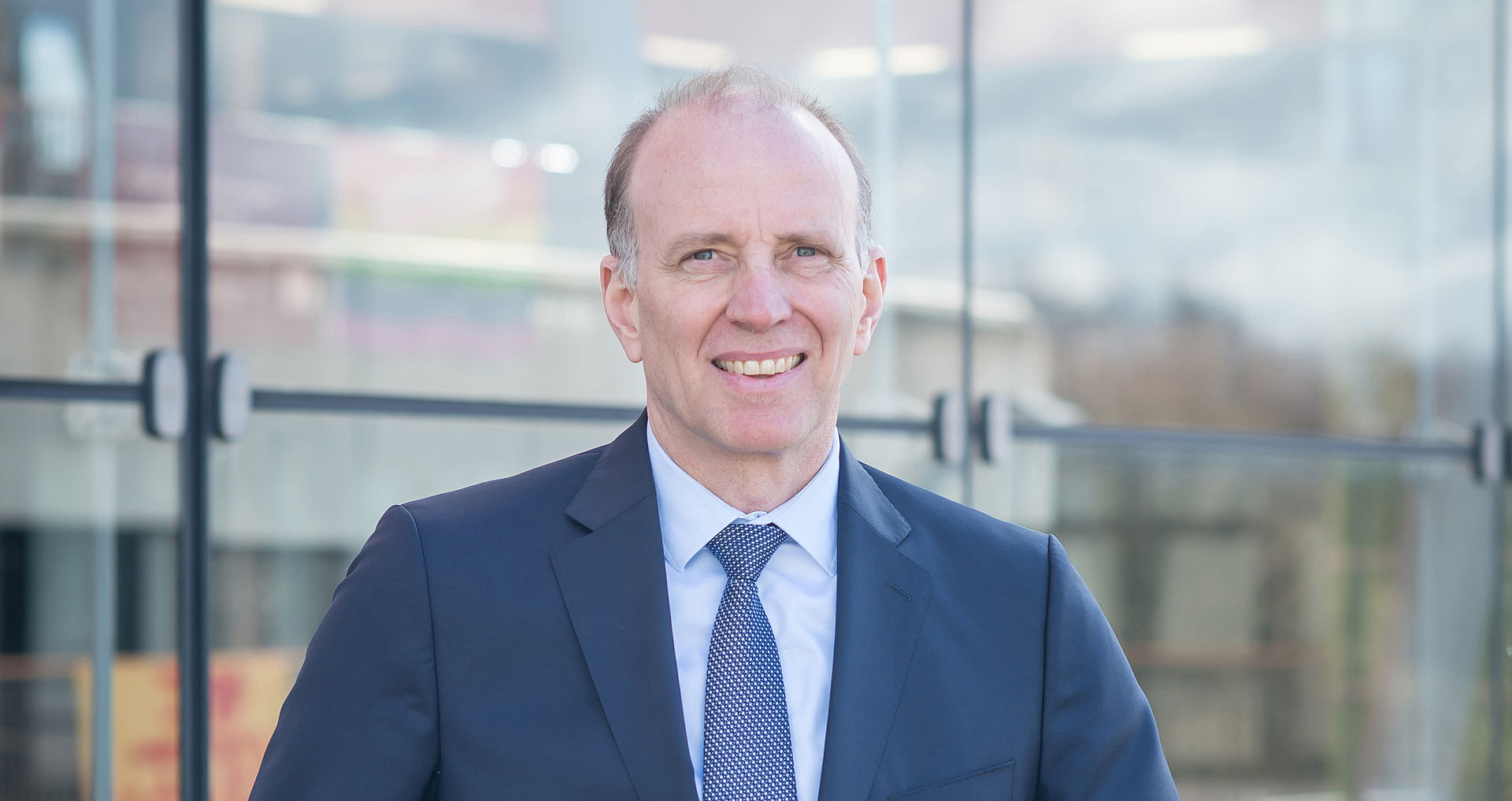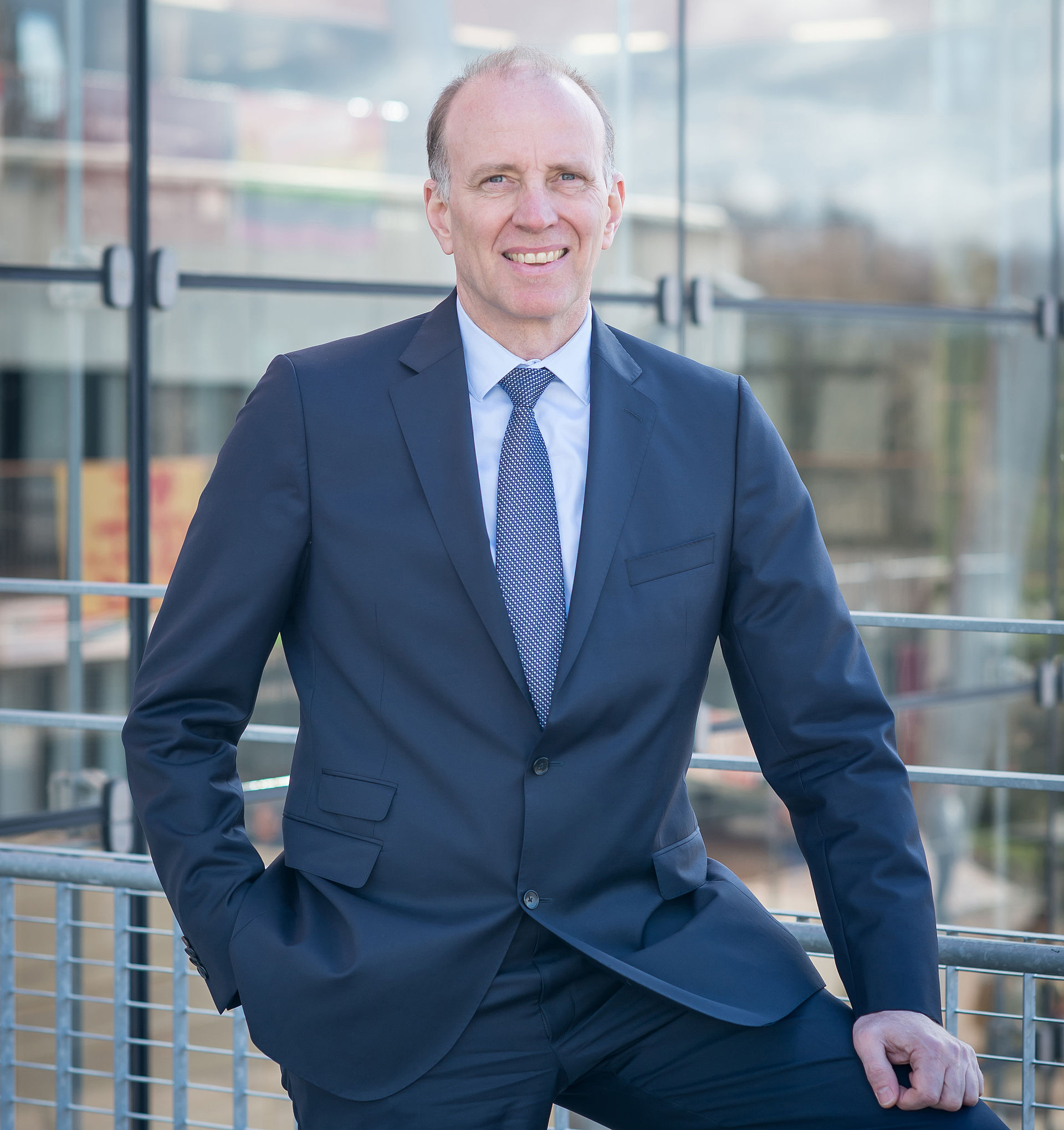July 5, 2019. Recently one of my business trips took me to Osterholz-Scharmbeck, a small town located only about 25 kilometers away from Bremen. There I took part in “Aerospace Day”, which had been organized by Andreas Mattfeldt, the member of parliament for the constituency of Osterholz. In addition to a discussion round, in which I was also allowed to participate, a presentation was held by astronaut Alexander Gerst. I was really enthusiastic about the effect Gerst created with his lecture and simultaneously impressed by it. The man is a true star. At times I felt like I was at a pop concert, with teenagers queuing at the stage for an autograph from “Astro-Alex”. The hall was completely full.
We were able to observe a similar phenomenon last October in Bremen during the International Astronautical Congress IAC at the Bremen fair grounds. When the world’s largest space congress opened its doors to the general public on October 3, there was a huge rush, which included many local visitors from Bremen. Their interest in “space travel made in Germany” was boundless (although it must be said that they were particularly driven by a desire to view the space activities of “their” City of Space). This very clearly showed us that we were no longer an exotic industry but had now well and truly joined the mainstream.
space has become a boom industry
At the IAC, Alexander Gerst was still orbiting in space, talking with the people of Bremen via a live link with the ISS. Since his return, he has been inspiring people with his impressions and reports on life in space. The audience’s enthusiasm for the German space traveler’s presentation was so great that on my way back to the company I found myself thinking what a good idea it would be for us to set up our own program with Alexander Gerst and to go on tour with him. I am convinced that he would fill much larger halls and that the space industry as a whole would find even more fans. This would be extremely important in times when all companies across the industry are desperately looking for engineers.
After all, space has become a boom industry. This is in no small way also due to appearances like that of Alexander Gerst’s in Osterholz-Scharmbeck, who through his social media communications and his magnificent pictures from space has focused attention on our industry, especially on the part of young people with an affinity for technology. But it also has to do with the fact that the industry has succeeded in making the benefits of space travel more accessible to the general public. Satellites from OHB, for example, which orbit the earth, make business more efficient and life more convenient and simpler. This has led to more money being invested in such programs in recent years, while scientific space exploration missions have also received greater attention.
All this has spurred demand for experts in high technology, which is why we have virtually full employment in our industry. Consequently, employers are in fierce competition with each other for the best minds. As a company, you have to adapt to this development and find a different approach for addressing this challenge.
It has therefore become tremendously important to be attractive as an employer to as many people as possible who are interested in space travel. I'm also highly convinced that it is important to start at a very early stage and to arouse interest in subjects such as science and technology at schools. And here, too, astronauts are a great help, something which we as a company have recently been able to experience for ourselves. OHB employees organized a program with the astronaut Matthias Maurer at the Bremen school, Ökumenisches Gymnasium. The students were thrilled. Here, too, we relied on the drawing power of a role model and learned from this that we have to search even more intensively for people to take the lead in the STEM (science, technology, engineering, mathematics) subjects. Young people in particular need people they can look up to, who they can turn to for orientation or who can show them that seemingly unsolvable tasks and challenges can be managed and that more than anything else it is important to try things out and find out for yourself where your own talents and weaknesses lie.
In Osterholz-Scharmbeck, Alexander Gerst deliberately addressed young women in the audience time and time again, encouraging them to strive for a profession as an astronaut. I can only support this – and simultaneously point out that an initiative has been established in Bremen aimed at sending the first German woman into space as an astronaut.
search for the best employees
On the other hand, it is also important for us as an employer to understand what expectations potential and existing employees have of the company. Generation Y and also the younger Generation Z each have much more volatile ideas with respect to their future careers and professions. These people take a much more experimental approach to their jobs, have very high demands of their employers and are by no means willing to show great consistency. Gaining as much experience as possible at the beginning of a career tends to be seen as a value unto itself. This describes the underlying conditions that we face in our search for the best employees.
OHB: every second one is 35 years or younger
The following fact proves just how dramatic this trend is: Of OHB System AG’s more than 1,500 employees in Germany, every second one is 35 years or younger. These people belong to the two aforementioned generations, which are exhibiting a strong change in values. Given the more volatile career plans mentioned above, the overriding goal must therefore be to ensure maximum identification with the employer as a basis for bonding them to the company. And, as outlined above, employee-bonding is of essential importance, especially given that our industry is characterized by more or less full employment and that demographic developments will pose major recruiting challenges for us.
Ultimately, the fact that we are looking for so many employees and are actively seeking them out is not such a bad problem. It testifies to the success of OHB and the city of Bremen as a center of technology. But this does not make it any less of a challenge because companies in the space industry are dependent on highly specialized specialists. Only these experts are able to handle highly complex and demanding projects within the defined framework. After all, it is not just a matter of mastering the technological challenges of a project. We also need to earn money from the project as we are a privately owned, profit-oriented company. Yet, we can only make a profit if the projects are completed on time and within the specified budget. To ensure this, we need to take intelligent and forward-looking steps to encourage potential employees to take an interest in space travel and, ideally, also our company at a very early stage.
Personal details:
Born in 1962, Marco Fuchs studied law in Berlin, Hamburg and New York. He worked as an attorney in New York and Frankfurt am Main from 1992 to 1995. In 1995, he joined OHB, the company that his parents had built up. He has been Chief Executive Officer of OHB SE since 2000 and of OHB System AG since 2011. Marco Fuchs is married and has two children.


